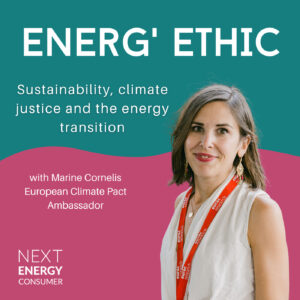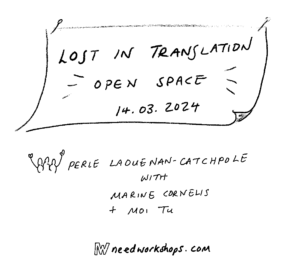My vacuum cleaner died without previous notice on the day Italy entered its second lockdown. I tried to open it to see if I could still do something to revive it. I was quickly disillusioned by the few repair shops that had remained open: I bought it too many years ago, in a different country. I looked online and found cheap and brand-new models, that could be delivered to my doorstep the day after. I ended up buying a new vacuum cleaner, although I would have preferred to repair my old one. My reasons – or excuses – were that I missed the skills, I was practising physical distancing conscientiously, and I had little time to get it fixed.
If this situation sounds terribly familiar, it is not because of Mercury retrograde but because each year over 20 kg per person of electrical and electronic products are put on the market in the EU, and their lifetime is at least 2.3 years shorter than expected, according to the European Environmental Agency.
#yourEUright to enjoy a peaceful breakfast. @EU_Commission will adapt #ProductSafety rules to the digital world. #NewConsumerAgenda pic.twitter.com/tXlzCLIFNJ
— EU Consumer Affairs (@EU_Consumer) November 16, 2020
However, thanks to the New Consumer Agenda, maybe in five or ten years, this behaviour will make little sense. As I already mentioned in March 2020, the EC aims to go beyond the “throwaway society”, make the economy more circular and embark European consumers in more sustainable consumption habits. Vice-President Jourová and Commissioner Reynders launched a very welcome New Consumer Agenda on 13th November. It will serve as a compass for consumer policies in the next five years and will take a step forward in the direction of digitalisation and green transformation. Cross-border stakeholders cooperation and the direct engagement of businesses will be essential to make this strategy work.
The Agenda also responds to more immediate needs stemming from the COVID-19 outbreak, such as those related to travels and transports, online scams and the sudden scarcity of certain products and services. Interestingly, the European Commission acknowledges that there is still a lot to learn from the impact of the COVID-19 on consumption patterns, and gives itself two years to get a clearer picture.
1. ♻️ The Green Transition
85% of EU consumers would welcome better information on the durability of a good when deciding on a purchase. Thanks to the New Agenda, consumers will access more sustainable products will a longer lifespan and better reparability options, without fearing greenwashing. The Green Deal and the Renovation Wave are linchpins of this objective.
As Ivo Mechels of Euroconsumers said, “consumers are now the driving force behind the transformation of the single market”. To do so, EU consumers will be better educated on their consumption patterns and learn how to become proactive and adopt more sustainable behaviours. They will get information on the durability of the products and know-how to access spare parts to fight early obsolescence and create a right to repair, as part of a circular economy approach. Sharing instead of buying, and second-hand markets will have a leading role to play, drawing in particular on the already conclusive experiences of the social economy. , Greenwashing will be addressed at its roots, and consumers will be protected from it to create more trust. In the power sector, energy communities are concrete examples of the kind of consumer empowerment that will enable the EU to fulfil its carbon-neutrality objectives. Legislative proposals will be presented in 2021 and 2022 to respond to these aspects.
The responsibility of engaging in more sustainable habits is not only in the hands of consumers but also in those of the businesses. The EC wants to help them produce better products, that are more in line with the values and the needs of the planet. The EC will call for better integration of sustainability objectives in the strategies and governance of the companies in a legislative proposal expected in 2021.
2. 📲 The Digital Transformation
As more and more citizens buy products and services online (grocery shopping and streaming services have boomed during the confinement periods), consumers must be as well protected online as they were in the offline world. People need to be better educated and aware of online fraud, including public health fraud. COVID-19 outbreaks and lockdowns have stressed the fragility of some people to online scams, dark patterns and hidden advertising, often performed by bots. In some instances, AI is demonstrating some bias that needs to be overturned. The EC foresees a horizontal legal act on requirements for AI in 2021. The EC will also review the General Product Safety Directive to address the new safety challenging stemming from new technologies and purchases made from sellers located outside the EU next year. Besides, the EC will update the guidance documents on the Unfair Commercial Practices Directive and the Consumer Rights Directive by 2022.
The issue of digitisation poses other problems in terms of accessibility. In particular, the EC wants to create an “electronic public identity” and to strengthen the right to portability with the GDPR (European Strategy for Data). Universal access to digital tools is also incredibly relevant for people with disabilities, as these tools are often not adapted to their specific needs. The Commission will therefore help the Member States to implement the requirements set up by the Directive on Accessibility (Accessibility act) by 2025.
As pressure on household budgets grows despite stimulus packages, the Commission wants to strengthen consumers’ rights to access digitised financial services. The Consumer Credit Directive and the Distance Marketing of Financial Services Directive will be reviewed in 2021 to adapt to the new needs. The Retail payment strategy, presented in September 2020, is aiming to provide reliable protection for consumers who use instant payment solutions.
3. ⚖️ Enforcement and redress
The EC wants to make sure that consumer rights are well known and enforced evenly everywhere. Monique Goyens, Director General of BEUC, was right in underlying that lack of enforcement is “the Achilles heel of EU and national consumer policy”.
Indeed, the EC found that between 2007 and 2019, 60% of websites checked were not to be complying with basic consumer rules. The Dieselgate scandal was also a huge wake-up call for the EC and enforcement authorities. The upcoming Directive on Representative Actions will enable consumers to join forces and obtain larger redress. Beyond the 2019 Directive on Better Enforcement and Modernisation of Consumer Law and the CPC regulation which will enter into force in January 2020, the cooperation and support of relevant stakeholders throughout Europe will be reinforced to overcome cross-border challenges. In particular, by 2022, the EC will create a trans-European toolbox (‘EU e-Lab’) to jointly monitor and investigate products sold online and reinforce the capacities of the consumer organisations and bodies in charge of Representative Actions.
Alternative Dispute Resolution and Online Dispute Resolution tools will keep on receiving support from the EC to facilitate individual redress. An explicit strengthening of the Ombuds’s competences for other types of complaints (e.g. those relating to IA or peer-to-peer services) would be welcome.
4. 🧸 Address vulnerability and the needs of particular groups
Older people, children, people with disabilities or with unbearable debts are facing additional difficulties in accessing products, services and information offered online. To fill up that gap, the EC will encourage local initiatives from the social economy, which provide offline and tailored information and advice (2021). (Find more about this issue in this article written with the ESRC Just Energy project)
Affordability is critical, and the EU takes the example of its recent Recommendation on Energy Poverty to demonstrate its willingness to ensure access to products and services for low-income households. The EC also wants to promote financial literacy from an early age, “as an essential skill for empowering consumers to make good decisions about their personal finances”.
The EC acknowledges the discriminations that AI performs towards particular minority ethnic or racial groups. The upcoming proposal for a horizontal legislative framework on Artificial Intelligence will target the bias and prejudice of algorithms. Hence, by 2023, the EC will build a strategic approach to improving consumer awareness and education also to overcome the discrimination that certain consumers face.
5. 🌎 The Global context
As more and more purchases come from sellers based outside the EU (27% in 2019 vs 17% in 2014), the EC wants to ensure that when European consumers buy from abroad, the product they receive is safe and compliant. Indeed, the EC found that in 2019, 64% of alerts in Safety Gate/RAPEX concerned products made outside of the EEA, often in China. An action plan with China will be set up in 2021, while the EU will keep the focus on its trade policy agreements and partnerships. Starting next year, the EC will also offer regulatory support, technical assistance and capacity building to EU partner countries.
The European Commission fully acknowledges the role of businesses and manufacturers, and therefore plans to present in 2021 a legislative initiative on sustainable corporate governance to foster long-term sustainable and responsible corporate behaviour, matching the European Climate Pact.
A new Consumer Policy Advisory Group will be created to monitor progress and reflect on priorities, that Next Energy Consumer would be thrilled to join and further contribute to the annual Consumer Summit.





2 Responses